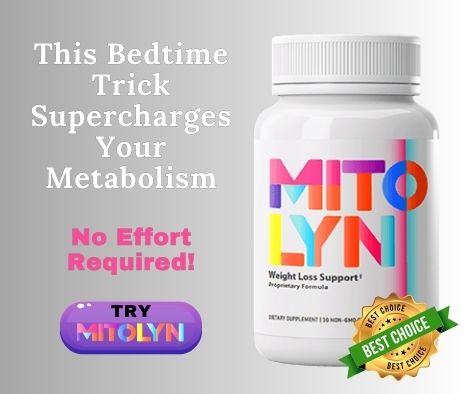Disclaimer: This article presents educational information and personal opinions based on published research. Always consult with qualified healthcare professionals before making any changes to your medications. Never stop taking prescribed medications without medical supervision.
Every day, 750 elderly Americans are hospitalized because their medications are killing them. From taking exactly what their doctors prescribed.
By the time you finish reading this article, another person will be dead from properly prescribed medications. And nobody's talking about it.
This crisis cuts across age, race, gender, and background. Anyone, anywhere, can be at risk.
The Numbers That Should Terrify You
Let me paint you a picture of legal drug dealing that makes street dealers look like amateurs:
The body count:
150,000 Americans will die in the next decade from adverse drug events
Medication reactions are the 5th leading cause of death in the US (CDC, 2022)
Every year, 35 million elderly seek emergency treatment from prescription drug reactions
2 million hospitalizations annually from medications taken as directed
The epidemic nobody mentions:
42% of people over 65 take 5+ medications daily (up from 24% in 1999) (JAMA, 2015)
20% of elderly take 10+ medications
In Korea, 86% of elderly take 6+ drugs, with 45% on 11+ medications
200% increase in polypharmacy over 20 years
The system works exactly as designed.
Red Flags Your Medications Are Killing You
Your body sends warning signs when something is wrong.
Warning signs of overmedication:
Dizziness or falls (present in 65% of polypharmacy patients)
Memory problems or confusion
Excessive fatigue
New symptoms after starting medications
Feeling worse despite "treatment"
Needing pills to counteract other pills
If you're on 5+ medications and feel like shit, blame the pills.
The Prescription Cascade: How One Pill Becomes Twenty
Here's how the medical industrial complex turns you into a walking pharmacy:
Step 1: You get prescribed blood pressure medication. It makes you dizzy.
Step 2: Instead of stopping the drug, your doctor prescribes medication for vertigo.
Step 3: The vertigo medication causes constipation. Here comes the laxative.
Step 4: The laxative causes dehydration. Now you need medication for that.
Step 5: The dehydration meds affect your sleep. Time for sleeping pills.
Step 6: The sleeping pills cause memory problems. Doctor thinks it's dementia. Prescribes more drugs.
This happens to millions of people right now. Doctors have a name for it: "prescribing cascade." They know it's happening. They keep doing it anyway.
Follow the Money: Why Your Pills Are Someone's Payday
Want to know why nobody's stopping this massacre? Follow the money.
The U.S. medication market hit $500 billion last year. That's billion with a B. Pharmaceutical companies spend twice as much on marketing as they do on research. Your doctor's "continuing education"? Often a pharma sales pitch with free lunch.
The profit pipeline:
Average doctor sees 40+ drug reps per week
Pharma spends $20,000 per doctor annually on "education"
Prescribing guidelines written by doctors taking pharma money
Insurance pays $300 for pills, $0 for lifestyle counseling
The Insurance Company Death Algorithm
Insurance companies don't just enable this crisis. They designed it.
Here's their profitable math:
Deny coverage for 45-minute appointments where doctors might actually think
Pay instantly for 7-minute med checks
Cover dangerous drug combinations without question
Reject safer alternatives as "experimental"
Flag doctors who don't prescribe "enough"
A pharmacy benefits manager leaked this to me: "We have algorithms that identify 'under-prescribing' physicians. They get letters. Their reimbursements get reviewed. The message is clear: prescribe more or earn less."
Insurance companies profit from medication management, not cures. A diabetic who controls blood sugar through diet costs them nothing. A diabetic on five medications generates steady revenue. Guess which one they incentivize?
They know exactly how many people their policies kill. They have actuaries who calculate it. They call it "acceptable loss." Your grandmother's death is a rounding error on their quarterly earnings.
The Youth Pill Epidemic
Polypharmacy has infected young adults too.
25% of college students are now on three or more psychiatric medications. Let that sink in. One in four young adults is already deep in the pharmaceutical maze before they can legally rent a car.
The young person's medication journey:
Age 8: ADHD diagnosis, hello stimulants
Age 12: Anxiety from stimulants, add an SSRI
Age 16: SSRI causes mood swings, bring in mood stabilizers
Age 18: Can't sleep from the cocktail, here's a sleep aid
Age 22: Five medications deep, feeling like shit, diagnosed with treatment-resistant depression
By 30, they're on eight medications and nobody remembers who they were without pills. The pharmaceutical industry sees lifetime customers. And they're recruiting younger every year.
Young and Already Dying
Talk to anyone under 30 about their medications. The stories will break you.
Sarah, 26: "I've been on antidepressants since I was 14. Tried to quit last year. The withdrawal was so bad I wanted to die. Doctor said that proved I needed them. Nobody told me I'd be dependent for life."
Mike, 23: "Started with ADHD meds in middle school. Now I'm on six different pills. My liver enzymes are fucked. Doctor says it's 'manageable.' I'm not even 25 and my body's already breaking down."
Jessica, 28: "Birth control, antidepressants, anxiety meds, something for the stomach problems the other meds cause. My mom asks why I'm tired all the time. It's the pills, Mom. It's always been the pills."
The "starter pack" becomes a life sentence:
Stimulants + birth control = blood pressure problems by 25
Antidepressants + anxiety meds = metabolic syndrome by 30
The full cocktail = chronic illness before you've paid off student loans
These kids think feeling like shit is normal. They've never known life without pharmaceutical fog. By the time they realize what's been stolen from them, they're too deep in dependency to escape.
The Deadly Math of Multiple Medications
Taking multiple medications multiplies risk exponentially:
5+ medications: 18% higher hospitalization risk
7+ medications: 35% higher hospitalization risk
10+ medications: 25% higher death risk within 5 years
11+ medications: Your body is a ticking time bomb (Maher RL et al., Drugs & Aging, 2014).
Korean researchers followed 3 million elderly patients. Those taking 5+ drugs had hospitalization rates of 67% and death rates of 15% over 5 years. The more pills, the more likely you die.
Nobody knows how these drugs interact. The FDA approves drugs one at a time. They test them on healthy young people. Nobody studies what happens when an 80-year-old takes 15 different medications together.
You're the experiment.
The World Pills Differently
Americans take four times more medications than Europeans (OECD Health Data, 2023). Four fucking times. And we're sicker.
The international reality check:
Denmark: Doctors get bonuses for DEprescribing
Japan: Average elderly on 3 meds vs our 10+
Netherlands: Medication reviews every 6 months, mandatory
Norway: 80% less psychotropic use, better mental health outcomes
Iceland: Requires written justification for every prescription over 3
Switzerland: Mandatory deprescribing consultations at 75
These countries treat medication like nuclear weapons—powerful, dangerous, use only when absolutely necessary. We treat them like candy.
In Denmark, they have deprescribing clinics. Doctors whose only job is getting people off unnecessary meds. Success rate: 85% of patients feel better after reducing medications. But in America? Good luck finding a doctor who'll even discuss it.
What other countries do that we don't:
Japan: Pharmacists have legal authority to refuse dangerous combinations
Germany: Insurance pays MORE for longer appointments
Sweden: National database flags all dangerous drug interactions in real-time
France: Medication reviews required before nursing home admission
Australia: Deprescribing guidelines taught in medical school
Their elderly live longer. Feel better. Take fewer pills. Cost less. The American healthcare system knows this. They've seen the data. They choose profits instead.
The Economic Terrorism of Medication
The pills aren't just killing bodies. They're destroying bank accounts.
The financial bleeding:
Average elderly person: $6,000/year on medications
Medicare Part D covers maybe half
Choosing between groceries and pills? 30% of seniors do
Medication-induced bankruptcy: 100,000+ seniors annually
But here's the sick part: The sicker you get from the pills, the more pills you need. The more pills you need, the broker you become. The broker you become, the worse you eat, the less you move, the sicker you get. It's a death spiral designed to extract every penny before you die.
The wealth transfer is staggering. The World War II generation—the ones who built this country—are transferring their life savings to pharmaceutical executives through their medicine cabinets. It's the greatest theft in human history, and it's perfectly legal.
Check Your Parents' Medicine Cabinet
Put this article down. Go to your parents' house. Open their medicine cabinet. Count the bottles.
What you'll likely find:
10-15 prescription bottles
Half of them treating side effects of the others
Medications from doctors who don't talk to each other
Pills they've taken so long nobody remembers why
Warnings that contradict each other
Now have this conversation:
"Mom/Dad, I'm worried about all these medications. Can we go through them together? Let's write down what each one is for. When did you start taking it? How do you feel?"
What you'll discover:
They don't know what half the pills do
They feel worse than before they started most of them
They're scared to question their doctor
They think feeling terrible is "just aging"
Document everything. Take pictures of every bottle. List every side effect they mention. This becomes your ammunition for the next doctor's visit.
The hardest part is watching your parents realize they've been poisoned by people they trusted. But that realization might save their lives.
In 2005, the FDA slapped a black box warning on antipsychotic drugs for dementia patients. The data was damning:
70% increase in death risk
Most deaths from heart failure or pneumonia
4.5% death rate vs 2.6% for placebo in just 10 weeks
The response; doctors kept prescribing them. By 2009, 180,000 dementia patients in the UK were on antipsychotics. The government's own report estimated this caused 1,800 excess deaths per year.
These drugs were never approved for dementia. They're chemical straight jackets, prescribed because sedating grandma beats proper staffing.
The Withdrawal Hell Nobody Warns You About
Here's what your doctor won't tell you: Getting off medications can be harder than heroin.
The withdrawal reality:
Benzodiazepines: Can cause seizures and death if stopped suddenly
Antidepressants: Brain zaps, vertigo, rage for months
Antipsychotics: Psychosis worse than original condition
Blood pressure meds: Rebound hypertension can cause stroke
Doctors will call it "discontinuation syndrome." Fancy words for "your brain is physically dependent and withdrawal might destroy you."
Most doctors have zero training in safe tapering. They'll tell you to cut your dose in half for a week then stop. That's like telling an alcoholic to switch from whiskey to beer for a week then quit. Medical malpractice disguised as treatment.
The Opioid Crisis Was Just the Beginning
Everyone knows about the opioid epidemic. 100,000+ deaths annually. Fentanyl in everything. Lives destroyed.
But focusing on opioids lets the bigger crisis hide in plain sight. While we're counting overdose deaths, prescription medications are quietly killing far more people:
What they're not telling you:
Antidepressants: 5,783 deaths in 2023
Benzodiazepines: 10,870 deaths (70% involved multiple drugs)
Blood thinners: Thousands of internal bleeding deaths annually
Diabetes drugs: Hypoglycemia kills more elderly than high blood sugar
The elderly who survived the opioid crisis? They're dying from their other 14 medications.
Why Your Doctor Prescribes Pills Like Candy
Doctors work in a system that rewards prescribing:
Average appointment: 7 minutes
Writing a prescription: 30 seconds
Actually figuring out your problems: Hours they don't have
Saying "stop taking all these pills": Lawsuit waiting to happen
The system is built for pills. Insurance pays for drugs. Doctors who prescribe get patients out the door. Doctors who deprescribe get complaints and complications.
Medical schools teach pharmacology. There's a pill for everything and a specialist for every pill. Nobody's job is to look at the whole picture and say "this is insane."
How to Fire Your Doctor (And Find One Who Won't Kill You)
Your doctor works for you. Never forget that. If they're pill-pushing, if they dismiss your concerns—fire them.
Questions that make pill-pushers squirm:
"What's the Number Needed to Treat for this medication?"
"How many patients need to take this for one to benefit?"
"What lifestyle changes can we try first?"
"Can you show me studies on long-term use?"
"Is this treating the root cause or just symptoms?"
"What happens if we don't add another medication?"
Finding doctors who actually give a damn:
Search for "deprescribing" or "integrative medicine" practices
Look for doctors who schedule 30+ minute appointments
Ask about their philosophy on polypharmacy upfront
Check if they're taking pharma money (look them up on OpenPayments)
Find physicians who view medications as last resort
You have the right to refuse any medication. You have the right to seek second opinions. You have the right to fire doctors who don't listen. Use these rights or lose your health.
Test Your Doctor: The Questions That Reveal Everything
Want to know if your doctor helps or harms? Ask these exact questions:
"What's the NNT for this medication?" (Number Needed to Treat - how many people need to take it for one to benefit) Good answer: Gives you a specific number Bad answer: "What's NNT?" or deflection
"What are the absolute risk reductions?" Good answer: "It reduces your risk from 2% to 1%" Bad answer: "It cuts your risk in half!" (technically true but misleading)
"How long have patients in studies taken this medication?" Good answer: Knows the study duration and admits limitations Bad answer: "It's been proven safe" without specifics
"What happens if we try nothing?" Good answer: Discusses watchful waiting as valid option Bad answer: Fear-mongering about consequences
"Are you familiar with deprescribing protocols?" Good answer: "Yes, let's review your medications" Bad answer: "Why would we stop medications that are working?"
If your doctor fails this test, you're in the wrong hands.
The Studies That Should Have Changed Everything
Korean National Health study (3 million elderly):
Each additional drug increases death risk
Benefits of medications obliterated by polypharmacy risks
Hospitalization becomes nearly inevitable with 10+ drugs
English Longitudinal Study of Ageing:
Mental health drug combinations increase death risk 55%
Cardiovascular death risk doubles with psych meds
Muscle relaxants + antidepressants = death cocktail
Understanding Society Study (UK):
46.6% of elderly on polypharmacy 47. Death risk increases linearly with medication count
No "safe" number above 4 medications
The evidence is overwhelming. The medical establishment's response? Guidelines suggesting "medication reviews" that rarely happen.
Hope Lives: The Escape Stories They Don't Tell
Margaret was 78, on 14 medications, and ready to die. Couldn't walk without falling. Couldn't think through the fog. Her daughter found a deprescribing specialist.
Six months later: Down to 4 medications. Walking daily. Memory returning. "I got my mom back," her daughter said.
Stories like this stay hidden.
Real results from deprescribing studies:
88% of patients feel better after medication reduction
Falls decrease by 30-40%
Cognitive function improves within weeks
Quality of life scores double
Many "chronic" conditions disappear
Many people trust the system that's killing them. They accept decline as inevitable. They never learn that many of their "age-related" problems are medication-related.
The Deprescribing Revolution Nobody Wants
Some doctors are waking up. They call it "deprescribing" - systematically reducing medications. The results?
Patients feel better within weeks
Cognitive function improves
Fall risk drops 30%
Quality of life skyrockets
Death risk plummets
But deprescribing is hard. It takes time. It requires thinking. Insurance doesn't pay for it. Most doctors won't touch it.
The system profits from your pills.
Your Battle Plan: How to Survive Modern Medicine
You can't trust the system to protect you. Protect yourself:
Step 1: Document Everything Start a medication diary today. Every pill, every side effect, every change. Date it. This becomes your weapon.
Step 2: Build Your Team Find a pharmacist who specializes in medication reviews Locate a doctor who believes in minimal medication Consider a patient advocate if you're overwhelmed Join online deprescribing communities for support
Step 3: Question Every Prescription Never accept a new medication without asking: What problem is this solving? What are the alternatives? What are the long-term studies? Is this treating a side effect of another drug? What happens if I don't take it?
Step 4: Demand Annual Reviews Real reviews. Every medication justified or eliminated. No sacred cows.
Step 5: Learn the Danger Combinations Some medication combos are particularly deadly: Benzos + opioids = respiratory failure Multiple psych meds = cardiac death Blood thinners + NSAIDs = internal bleeding Muscle relaxants + sleep aids = never waking up
The nuclear option: Find a geriatrician who specializes in deprescribing. They're rare. They're worth the search.
Read more about safe deprescribing in ‘The Maudsley Deprescribing Guidelines’ or the patient-friendly ‘Worst Pills, Best Pills’.
### The Truth They Don't Want You to KnowThe medical system works perfectly. Pharmaceutical companies are posting record profits. Doctors are avoiding lawsuits. Insurance companies are processing claims.
The only problem; You're dying.
Every prescription is a bet that the benefit outweighs the risk. But when you're on 10 medications, nobody knows the odds anymore. You're playing Russian roulette with five bullets in the chamber. The greatest medical advance of the 21st century will be learning when to stop prescribing drugs.
Your Choice: Pills or Life
Right now, millions of people are taking medications that will kill them. Will. The studies are clear. The deaths are documented. The pattern is undeniable.
But you have a choice. You can be another statistic in the prescription death toll, or you can fight back. Question everything. Demand answers. Find doctors who see you as more than a collection of symptoms requiring pills.
Your medicine cabinet hosts your biggest health threat. The pills meant to save you are the ones most likely to kill you.
The One Thing to Do Right Now
Open your medicine cabinet. Count your pills. If you're taking five or more medications, you're already at risk. The cascade has begun.
Your next move is to start asking questions. Hard questions. Uncomfortable questions. Questions that might save your life.
Find one doctor—just one—who will look at all your medications with fresh eyes. Who will ask "Do you really need all of these?" Who sees deprescribing as healing.
That conversation could add years to your life. More importantly, it could add life to your years. The pills won't protect you. The system won't save you. But armed with knowledge and the right questions, you can save yourself.
Your life is worth more than their profits. Start acting like it.
Share this article with anyone who takes five or more medications. Start the conversation. Real change begins with a single question: “Do I really need all these pills?” That question can save a life.
Remember: This article is based on published research and personal interpretation. Always work with qualified healthcare providers when making medication decisions. Never stop medications without medical supervision. But always, always question.






